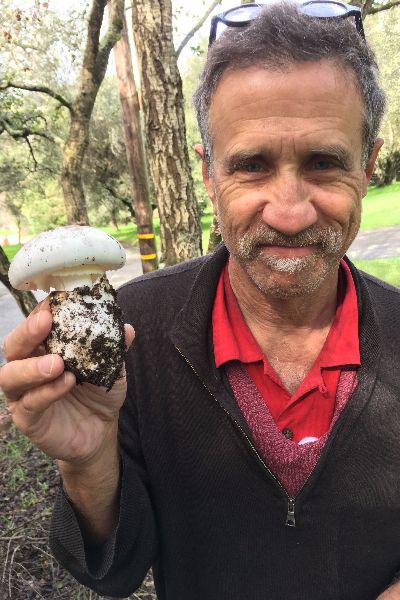Damn want a shit storm.
little back round to the simple question ask.
Moved to bama in 93 @ 46 yo never had sinus issues ever, grew up on a farm. My work included Redstone in Huntsville, right in the middle of what the Indians called the valley of the sickness. (Do to so much mold) Went to an ENT who made me a diabetic with Decadron. The insulin was fun for 18 months, then metformin for 2 years. finally got off all that shit, when I kept my A1C at 4.9 uning what I call normal life, and common sense.
Then came, you have high blood pressure, really why do you say that? You were141/80 when you came in? OK but clue for you, I can set here for 5 minutes and it will drop to 115-120/69-72 then I can stand up & sit right back down & it will be in the 140s' over 80 again, & 5 minutes later it will be down in what you call normal again. So you are saying that I need to take zyx & a baby asprin the rest of my life for that?
Then came the scamdimic and I was not going with that program, at all.
Then last visit he says I need a heart stress test, right after the yearly wellness, OK what did you find/hear wrong? Nothing but you are almost 77 its time? This is where I lost it, Clue me doc, I do 3+ miles a day at 3.5mph at a 10% grade on the tread mill, 30 minutes on a upper body machine & 15 minutes on a bike 6 days a week, & when I come off my heart rate is 84 & Bp is 123/71, does that sound like I have heart issues? His response well if you're not going to listen to me find another Dr. OK I'm real good with that as I don't trust you ass anymore anyway.
New doc, everything looks excellent but your cholesterol is a little high, you need to take this, Hard stop Doc, that shit almost killed some folks I know & made others sick as dogs, is this really needed? As long ago I had a Doc in Fla that said I had high cholesterol but those numbers were normal for ME.
Latest, had cataracts removed 4 weeks ago, everything is so blurry its a bitch trying to type & read here, don't even think its safe to drive, luckily 17yo grandson is here for that. Oh you'll be able to see great in a a week they say.
I'm to the point I don't trust the med system for much of anything anymore. Hence the reason for the OP.
I'm assuming you aren't diabetic now, and you basically had steroid induced diabetes, but my understanding is statins are not recommended to be started at all at your age anyway given the most recent PURL study. From the Journal of Family Practice - which actually establishes most of the guidelines for GPs:
J Fam Pract. 2020 Jun; 69(5): 257–259.
PMCID: PMC7307931
PMID:
32555755
PURLs: How old is too old for statins?
Bob Marshall, MD, MPH, MISM, FAAFP and
Nick Bennett, DO, MBA, FAAFP
Madigan Family Medicine Residency, Tacoma, WA
Corey Lyon, DO, DEPUTY EDITOR
Corey Lyon, University of Colorado Family Medicine Residency, Denver ;
Copyright and License information PMC Disclaimer
When to start, continue, or stop statins in those ages ≥ 75 years has been a quandary. Here’s what 2 studies have to say.
PRACTICE CHANGER
Do not start a statin in patients ages ≥ 75 years who do not have known vascular disease or type 2 diabetes; start or continue a statin in all patients ages 75 to 84 with type 2 diabetes to prevent cardiovascular events and mortality; and start or continue a statin in patients ages > 75 years who have known vascular occlusive disease.
STRENGTH OF RECOMMENDATION
B: Based on a meta-analysis of randomized controlled trials and a retrospective cohort study.
Ramos R, Comas-Cufi M, Marti-Lluch R, et al. Statins for primary prevention of cardiovascular events and mortality in old and very old adults with and without type 2 diabetes: retrospective cohort study.
BMJ. 2018;362:k3359.
1
Cholesterol Treatment Trialists’ Collaboration. Efficacy and safety of statin therapy in older people: a meta-analysis of individual participant data from 28 randomized controlled trials.
Lancet. 2019;393:407-415.
2
Go to:
ILLUSTRATIVE CASE
Ms. M is a 76-year-old woman with well-controlled type 2 diabetes mellitus for 10 years and well-controlled mild hypertension. She is otherwise healthy, and her mother lived to age 95. Ms. M has never smoked, has no previous history of vascular/cardiovascular disease, and drinks 1 glass of wine 2 to 3 times per week. Based on the American College of Cardiology (ACC) calculator, she was started on atorvastatin years ago. Is continued use of the medication of any benefit at her current age?
The 2018 American Heart Association (AHA)/ACC/Multi-Society cholesterol guidelines do not provide primary prevention recommendations for those older than age 75 years.
3 Up to age 75, the guidelines recommend that patients with type 2 diabetes and a low-density lipoprotein cholesterol (LDL-C) level ≥ 70 mg/dL, as well as those without diabetes but with an LDL-C ≥ 70 mg/dL and a 10-year atherosclerotic cardiovascular disease (ASCVD) risk ≥ 10%, be started on medium-intensity statin therapy.
A 2018 consensus panel review of the current literature, sponsored by the National Institute on Aging and the National Heart, Lung, and Blood Institute, concluded that there was insufficient evidence regarding the benefits and harms of statins in older adults, especially those with comorbidities, and that there was a paucity of evidence about statin therapy outcomes (both adverse and beneficial) relevant to older adults.
4
A review of all guidelines published since 2013 revealed that only the United Kingdom’s 2014 National Institute for Health and Care Excellence (NICE) guideline provides a strong, risk-based recommendation for initiating primary prevention with statins in patients > 75 years old.
5 These recommendations are based on the QRISK2 calculator (which has since been updated to the QRISK3), which assigns everyone ages > 75 years a > 10% 10-year risk score. This provides a universal statin indication for anyone in the 76-to-84 age range.
6
Both the ACC/AHA and US Preventive Services Task Force guidelines clearly state that there are too few data and inadequate evidence in people older than 75 for a strong, risk-based statin recommendation.
5 The Canadian Cardiovascular Society guideline takes a similar stance, emphasizing that the recommended Framingham risk model is not well validated in people > 75 years.
5
Go to:
STUDY SUMMARIES: Two different looks at statin use in the elderly
A retrospective cohort study (N = 46,864; median follow-up, 5.6 years) examined whether statin treatment is associated with a reduction in atherosclerotic disease and mortality in old and very old adults with and without type 2 diabetes.
1 Patients were enrolled from a large, anonymized national database in Spain. The researchers looked only at first-time users of statins and those without a statin prescription within the past 18 months.
FAST TRACK
Statin therapy seems to provide no benefit to patients ages > 75 years without ASCVD or in patients ages ≥ 85 years without ASCVD, regardless of type 2 diabetes status.
Patients with previous ASCVD, type 1 diabetes, previous lipid-lowering treatment, dementia, cancer, or paralysis were excluded, as were those who were in residential care, were on dialysis, or had received an organ transplant. Patients were stratified by age (75-84 years and ≥ 85 years), diabetes status (with or without type 2 diabetes), and statin use (nonuser or new user).
Results. For patients with type 2 diabetes, the risk of ASCVD (a composite of coronary heart disease and stroke) was lower among those who took statins than among those who did not in the 75-to-84 group (hazard ratio
= 0.76; 95% confidence interval [CI], 0.65-0.89; 1-year number needed to treat [NNT] = 164). Among those who took statins, there was also lower all-cause mortality (HR = 0.84; 95% CI, 0.75-0.94; 1-year NNT = 306). In those ages ≥ 85 years with diabetes, the statin group did not have a lower risk of ASCVD (HR = 0.82; 95% CI, 0.53-1.26) or all-cause mortality (HR = 1.05; 95% CI, 0.86-1.28).
For patients ages 75 to 84 years without diabetes, there was no difference in risk between groups for ASCVD (HR = 0.94; 95% CI, 0.86–1.04) or all-cause mortality (HR = 0.98; 95% CI, 0.91-1.05). In those ages ≥ 85 years without diabetes, there was also no difference between groups for ASCVD (HR = 1; 95% CI, 0.80-1.24) or for all-cause mortality (HR = 1; 95% CI, 0.90-1.11).
A 2019 meta-analysis of randomized controlled trials (RCTs) (n = 134,537) and RCT summary data (n = 12,705) evaluated the safety and efficacy of statin therapy in patients ages ≥ 55 years.
2 In the group of patients ages > 75 years (n = 14,483; median follow-up, 4.9 years), each 1 mmol/L reduction in LDL-C was associated with significant decreased risk for major vascular events (risk ratio [RR] = 0.82; 95% CI, 0.70-0.95) and for major coronary events (RR = 0.82; 95% CI, 0.70-0.96).
In subgroup analysis by the presence or absence of previous vascular disease, there was a decreased risk per 1 mmol/L LDL-C reduction of major vascular events in patients with previous vascular disease (RR = 0.85; 95% CI, 0.73-0.98); however, there was not a significant effect in patients without previous vascular disease (RR = 0.92; 95% CI, 0.73-1.16).
Go to:
WHAT’S NEW: Statins may be unnecessary in older adults without ASCVD or T2DM
Statin therapy reduces the risk of ASCVD and mortality in patients ages 75 to 84 with type 2 diabetes and in patients > 75 years with known vascular disease. However, statin therapy seems to provide no benefit in patients ages > 75 years without ASCVD or in patients ages ≥ 85 years without ASCVD, regardless of type 2 diabetes status.
Go to:
CAVEATS: Retrospective cohort design leaves cause and effect equivocal
Even though the first study was large (with more than 46,000 patients) and the median follow-up was 5.6 years, it was a retrospective cohort study. While there is clearly an association between statin therapy and reduced ASCVD and all-cause mortality in patients with diabetes ages 75 to 84 years, cause and effect cannot be unequivocally stated. However, the meta-analysis, which included RCTs, confirms the benefit of statins in secondary prevention for older patients.
The cohort study did not look at adverse effects from statin therapy in this age group, but the data from the 2019 meta-analysis did not reveal any significant risk of myopathy.
Go to:
CHALLENGES TO IMPLEMENTATION: Guidelines are lacking and discontinuing meds requires discussion
The lack of supporting guidelines to treat this age group with statins remains the largest barrier to implementation. Many patients may already be taking a statin, so a discussion about discontinuing medication will need to be initiated.
Go to:
Acknowledgments
The PURLs Surveillance System was supported in part by Grant number UL1RR024999 from the National Center for Research Resources, a Clinical Translational Science Award to the University of Chicago. The content is solely the responsibility of the authors and does not necessarily represent the official views of the National Center for Research Resources or the National Institutes of Health.
Go to:
References
1. Ramos R, Comas-Cufi M, Marti-Lluch R, et al. Statins for primary prevention of cardiovascular events and mortality in old and very old adults with and without type 2 diabetes: retrospective cohort study.
BMJ. 2018;362:k3359. [
PMC free article] [
PubMed] [
Google Scholar]
2. Cholesterol Treatment Trialists’ Collaboration. Efficacy and safety of statin therapy in older people: a meta-analysis of individual participant data from 28 randomized controlled trials.
Lancet. 2019;393:407-415. [
PMC free article] [
PubMed] [
Google Scholar]
3. Stone NJ, Grundy SM. The 2018 AHA/ACC/Multi-Society cholesterol guidelines: looking at past, present and future.
Prog Cardiovasc Dis. 2019;62:375–383. [
PubMed] [
Google Scholar]
4. Singh S, Zieman S, Go AS, et al. Statins for primary prevention in older adults—moving towards evidence-based decision-making.
J Am Geriatr Soc. 2018;66:2188–2196. [
PMC free article] [
PubMed] [
Google Scholar]
5. Mortensen MB, Falk E. Primary prevention with statins in the elderly.
J Am Coll Cardiol. 2018;71:85–94. [
PubMed] [
Google Scholar]
6. ClinRisk. Welcome to the QRISK®3-2018 risk calculator.
www.qrisk.org/three/. Accessed May 27, 2020. [
Google Scholar]
-------------------------------------------------------------------------------------------------------------------------------
I sincerely hope this helps your decision-making




